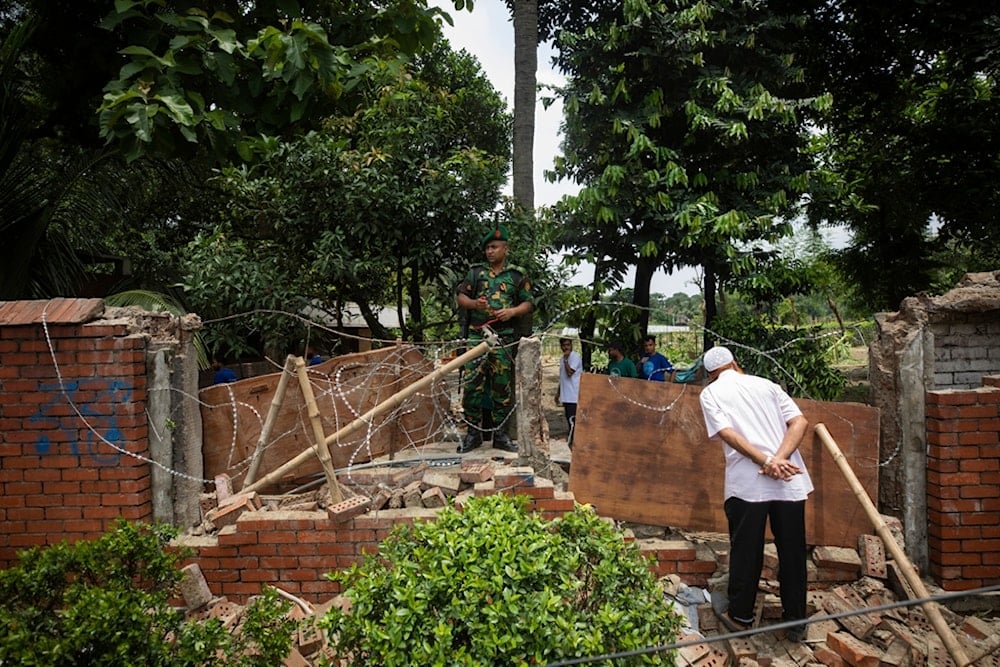Bangladesh seeks extradition of ex-PM from India for judicial process
Sheikh Hasina, 77, fled to India on August 5 following a student-led uprising against oppression during her 15-year rule, which left over 700 dead and led to a transitional government.
-

A man peeks inside the boundary wall of the vandalized house of Sheikh Hasina, who resigned as Prime Minister on Monday, in Dhaka, Bangladesh, on Tuesday, August 6, 2024. (AP)
Bangladesh on Monday requested India's assistance in facilitating the extradition of ousted Prime Minister Sheikh Hasina to Dhaka, Bangladesh's Foreign Adviser Touhid Hossain told reporters on Monday.
"We sent a note verbale (diplomatic message) to the Indian government saying that the Bangladesh government wants her (Hasina) back here for the judicial process," the Minister said, as quoted by state-run Bangladesh Sangbad Sangsta (BSS) news agency.
Sheikh Hasina, 77, fled to India on August 5 following a student-led uprising against oppression during her 15-year rule, which left over 700 dead and led to a transitional government. In Dhaka, she faces charges including genocide, with an existing extradition treaty between Bangladesh and India potentially facilitating her return.
"We have a prisoner exchange agreement with India. It will be carried out under that agreement," Home Affairs Advisor Lt. Gen. (retired) Jahangir Alam Chowdhury told reporters in Dhaka.
Nobel laureate Muhammad Yunus has led Bangladesh's transitional government since August 8, while relations with India have deteriorated amid accusations of media "propaganda" and border killings. Yunus urged India to address tensions caused by Sheikh Hasina's stay, which New Delhi labeled temporary. Despite strained ties, India's Foreign Secretary Vikram Misri visited Dhaka, where Yunus called for measures to curb violence along the border.
Read more: Two new murder cases filed against former Bangladesh PM
Bangladesh and India share a 4,096-kilometer land border, one of the world's longest. Nobel laureate Muhammad Yunus, leading Bangladesh's transitional government, has requested time until 2026 to implement institutional reforms ahead of the first general elections in the post-Hasina era.
The interim government and the student movement behind the uprising accused Hasina's 15-year rule of undermining democratic institutions, stressing the need for reforms to ensure free and fair elections.

 2 Min Read
2 Min Read








